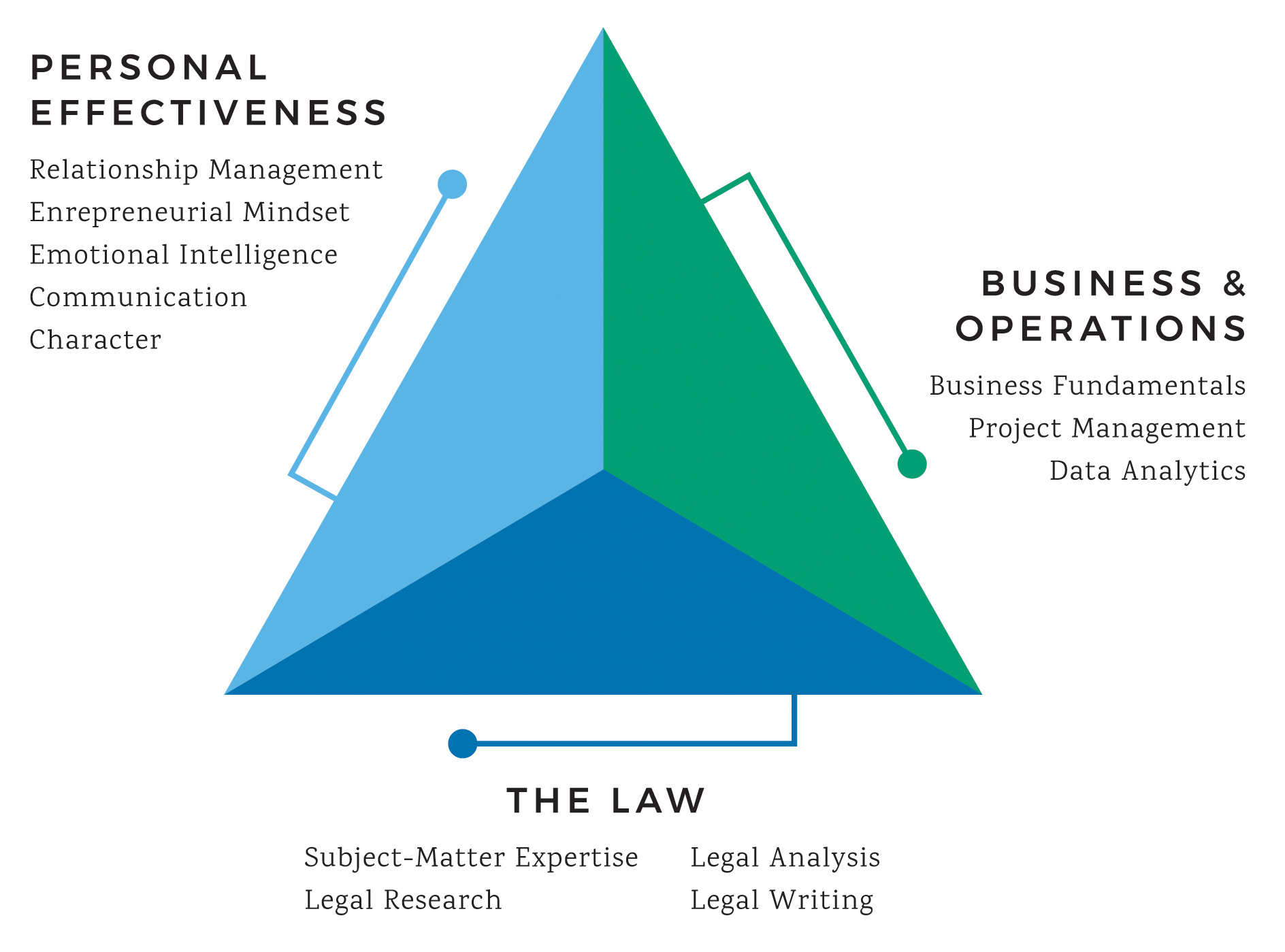Legal industry experts predict that personal effectiveness skills – like relationship management and emotional intelligence – will become the most critical component of lawyer competency, overtaking even the law.
Lawyers are being asked to do more than ever, as the Delta Model illustrates. The model looks at responsibilities across a legal career to help legal educators and lawyers attend to the full range of competencies needed for success.
It’s not that legal skills have become less important or easier to acquire. Legal professionals still have to apply the law expertly. Now, they have to do that while also building their emotional intelligence and business skills.
So how do they fit it in?
The right legal tech and tools
Coaching and mentorship are certainly part of the solution for all elements of the Delta Model. But what do legal professionals use to find day-to-day efficiency and relief from manual work and reinventing the wheel?
That’s where legal technology and tools like Practical Law can help immensely. Lawyers can turn to legal-specific technology and resources to manage their legal work and improve their process and business skills. Instead of spending hours or days trying to keep up with ever-changing legal updates, they can rely on trusted legal tech to do that for them – freeing up time and energy to focus on the other aspects of lawyering.

Legal tech and the law
For generations, attorneys have learned new skills by asking more senior colleagues for guidance and advice. Recently, they’ve also turned to search engines. Colleagues aren’t always available, and their perspectives may be good but not always thorough. Search engines give “answers” but leave it to the attorney to sift through the results and figure out which sources to trust.
Some legal tech providers anticipated these challenges. They have developed tools that work as easily as asking a question of a colleague or search engine but deliver much more powerful answers.
Now, instead of going to one attorney for guidance, you get to tap into the knowledge of several hundred. How? Well, with Practical Law, new attorneys can find curated wisdom from more than 300 seasoned attorneys. No longer must they struggle just trying to figure out where to start.
This frees them and their mentors to spend time on more strategic matters — and everyone can deliver exceptional client service.
Support your business and operations skillsets with legal technology
Some firms systematize matters so that everyone follows essentially the same process. Seyfarth Shaw, for instance, has adapted Lean Six Sigma to its legal practice. Legal professionals there use hundreds of legal and operational process maps as well as automation tools and collaboration platforms that reduce manual effort.
Matter maps and clear guidance on best practices help new associates get off on the right foot and start delivering billable work more quickly. Such tools are also helpful for seasoned attorneys switching practice areas. Using maps and processes frees up attorneys to meet with clients and learn about the business of their law firm.
Legal technology supports personal effectiveness
There aren’t shortcuts to personal effectiveness. Relationship management, emotional intelligence, and an entrepreneurial mindset are developed over a lifetime. Lawyers learn from mentors and experience.
As lawyers learn to communicate more effectively, they may look to technology to support their message. For instance, clients often learn and are moved by stories and images. New data visualization tools make it easy to show how their anecdotes and earned wisdom look in the grand scheme of things. Clients and lawyers benefit from clearer, more visual communication.
Complement your legal skills with legal technology
Effective lawyering will always be a human endeavor, but there are clear areas where technology can support the humans delivering excellent legal service, across all development areas.
New advances in legal technology can support lawyers as they develop skills across the Delta Model. Download our white paper, How technology drives law firm modernization, to see how advanced technology can benefit your firm.






